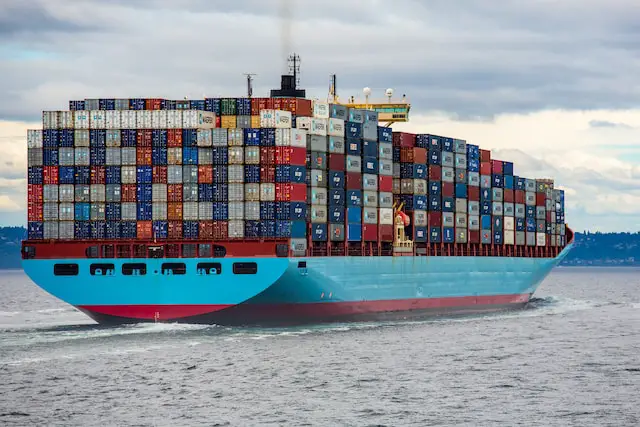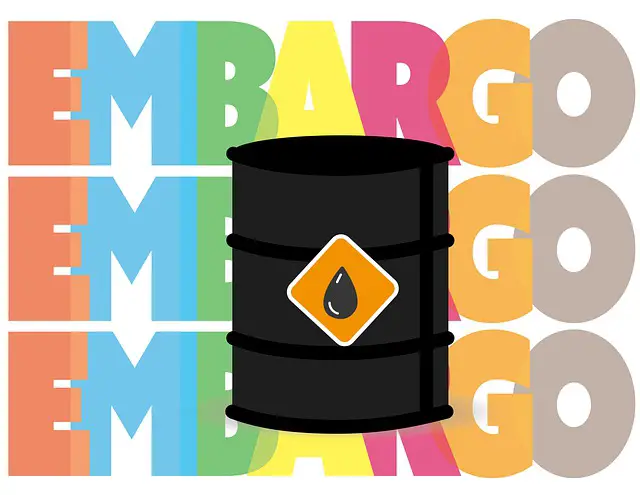Autarky is when a country completely cuts off all trade with the outside world, while an economic embargo is when a country bans all trade with a specific country. In other words, autarky is an economic system in which a country or other political entity produces everything it needs within its own borders. An embargo is a government order that restricts trade with another country or region.
What is autarky?
(Photo by Ian Taylor on Unsplash )

Autarky is the complete economic independence of a state, particularly in regard to its foreign trade. An autarkic state does not engage in any international trade, instead producing all the goods and services it needs domestically.
The term “autarky” comes from the Greek auto (self) and arkein (to suffice) and was first used in the 17th century. The concept is similar to that of self-sufficiency, but with a focus on economic rather than physical independence.
There are several reasons why a state might choose to pursue autarky. One is to protect itself from economic Dependence on other countries, which could lead to political vulnerability. For example, during the Cold War, many Communist countries pursued autarky in order to insulate themselves from Western influence.
Another reason is to shelter domestic industries from foreign competition. This can be done by imposing high tariffs on imported goods, as well as quotas and other restrictions on imports.
Finally, autarky may be seen as a way to achieve economic development. By protecting domestic industries and keeping foreign capital out, a country can encourage the development of its own industry and infrastructure. This was the rationale
What is an economic embargo?
(Image by Alexandra_Koch from Pixabay )

An economic embargo is a government-imposed trade restriction that is designed to isolate a country’s economy. The goal of an economic embargo is to damage the target country’s ability to trade with other nations and, as a result, its overall prosperity.
An economic embargo can be imposed for a variety of reasons, including political or military conflict, human rights violations, or nuclear proliferation. In most cases, an embargo is imposed in an effort to change the behavior of the target country.
While economic embargoes are sometimes effective, they often have negative consequences for the countries that impose them. In many cases, economic embargoes end up hurting the very people they are intended to help.
Why countries choose autarky or economic embargo
There are many reasons why countries choose to either pursue autarky or an economic embargo. Some countries may feel that they need to be self-sufficient in order to protect their own interests, while others may want to punish another country by cutting off trade.
Autarky can be a difficult path to pursue, as it requires a country to be completely self-sufficient. This can be a challenge for countries that are not naturally resource-rich. In addition, autarky can lead to isolated economies and a lack of competition, which can stifle innovation and growth.
Economic embargoes, on the other hand, are often used as a tool of foreign policy. They can be used to pressure another country into changing its policies, or as a form of punishment for unacceptable behavior. However, economic embargoes can also have negative consequences for the country imposing them, as they can lead to retaliation and a loss of trade partnerships.
Does autarky mean no trade?
No, autarky does not mean no trade. An embargo is an official ban on trade with another country. Autarky is the policy of economic self-sufficiency. A country practicing autarky would seek to produce all the goods and services it needs within its own borders, without relying on imports from other countries.
What happens when a country goes from autarky to free trade?
When a country opens up its economy and starts trading with other countries, it is said to have moved from autarky to free trade.
There are several key differences between autarky and free trade. In an autarkic economy, there is little to no competition; firms are often state-owned and produce only for the domestic market. In a free trade economy, firms face competition from both domestic and foreign companies. This leads to higher quality products and lower prices for consumers.
Another key difference is that in an autarkic economy, resources are often not used efficiently. For example, a country may have plenty of iron ore but no way to process it into steel. In a free trade economy, resources can be traded so that they can be used more efficiently. This leads to higher economic growth and development.
The advantages and disadvantages of autarky
Autarky is a term used to describe a situation where a country or region is economically self-sufficient, meaning that it produces and consumes all goods and services within its own borders without engaging in international trade. Here are some potential advantages and disadvantages of autarky:
Advantages of Autarky:
- Economic Independence: One of the main advantages of autarky is that it allows a country to be economically independent and self-sufficient, reducing its dependence on other countries for imports and exports.
- Control over resources: Autarky provides a country with greater control over its resources, which can be used to meet the needs of its own people rather than being used for the benefit of other countries.
- Protection of local industries: Autarky can help protect local industries from competition from foreign companies, helping to promote the growth of domestic industries.
Disadvantages of Autarky:
- Limited choice of goods and services: Autarky can lead to a limited choice of goods and services, as a country may not be able to produce everything it needs domestically.
- High costs: Autarky can lead to higher costs for goods and services due to a lack of competition, which can hurt consumers.
- Reduced innovation and efficiency: Without competition from foreign firms, local industries may become complacent and less innovative, leading to reduced efficiency and productivity.
- Reduced access to global markets: Autarky can lead to reduced access to global markets, which can limit a country’s ability to sell its goods and services abroad.
While autarky can provide some advantages in terms of economic independence and protection of local industries, it can also lead to a limited choice of goods and services, higher costs, and reduced innovation and efficiency. As such, many countries today engage in international trade to benefit from the advantages of global markets.
The advantages and disadvantages of economic embargo
An economic embargo is a government-imposed restriction on trade and commerce with one or more countries. Embargoes are often used as a tool of foreign policy to influence the behavior of other countries. Here are some potential advantages and disadvantages of economic embargoes:
Advantages of Economic Embargoes:
- Pressure on target country: Embargoes can put pressure on a target country by restricting its access to important goods and services, causing economic hardship and potentially influencing the country’s behavior.
- Protection of national interests: Embargoes can be used to protect a country’s national interests, such as human rights, environmental protection, or national security.
- Support for international law: Embargoes can be used to enforce international law, such as sanctions against countries that violate human rights or engage in terrorism.
- Economic opportunities for domestic industries: Embargoes can create opportunities for domestic industries to fill the void left by foreign competitors, potentially leading to economic growth and job creation.
Disadvantages of Economic Embargoes:
- Harm to innocent citizens: Embargoes can harm innocent citizens in the target country, who may suffer from lack of access to food, medicine, and other essential goods and services.
- Negative impact on global economy: Embargoes can have a negative impact on the global economy by disrupting trade flows and potentially leading to retaliatory measures by affected countries.
- Difficulty in enforcement: Embargoes can be difficult to enforce, especially if other countries are willing to trade with the target country or if the embargoed goods can be smuggled across borders.
- Political backlash: Embargoes can lead to political backlash and criticism, especially if they are seen as unfair or unjust.
Economic embargoes can be a powerful tool of foreign policy, but they can also have negative consequences for innocent citizens, the global economy, and international relations. As such, embargoes should be used carefully and with consideration for their potential impacts.
Featured Image By – Jorge Fernández Salas on Unsplash








